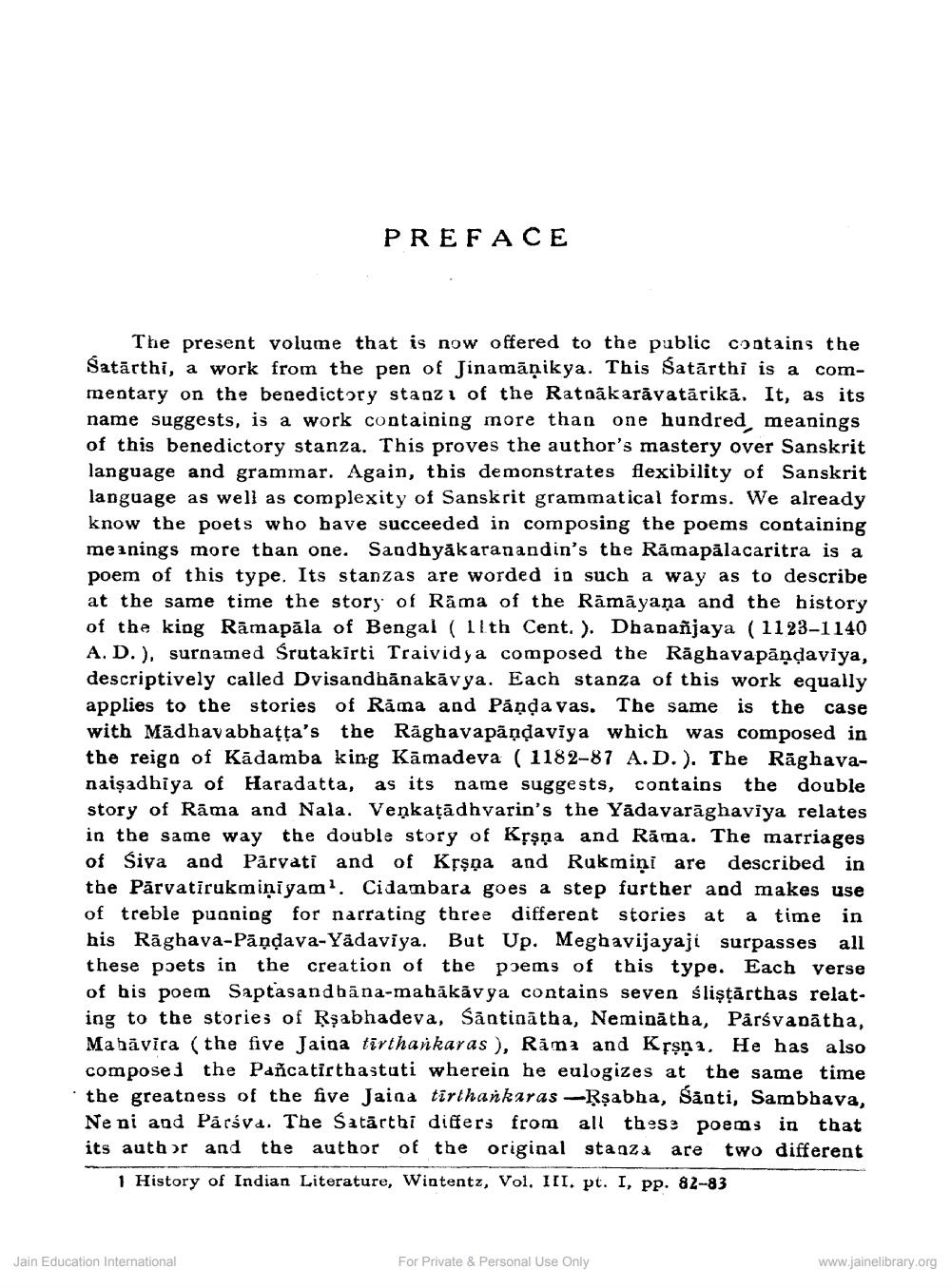Book Title: Ratna karavatarikadya sloka satarthi Author(s): Jinmanikyavijay, Bechardas Doshi Publisher: L D Indology Ahmedabad View full book textPage 6
________________ PREFACE The present volume that is now offered to the public contains the Satārthi, a work from the pen of Jinamāņikya. This Satārthi is a commentary on the benedictory stanzı of the Ratnākarávatārikā. It, as its name suggests, is a work containing more than one hundred meanings of this benedictory stanza. This proves the author's mastery over Sanskrit language and grammar. Again, this demonstrates flexibility of Sanskrit language as well as complexity of Sanskrit grammatical forms. We already know the poets who have succeeded in composing the poems containing meanings more than one. Sandhyakaranandin's the Ramapalacaritra is a poem of this type. Its stanzas are worded in such a way as to describe at the same time the story of Rāma of the Rāmāyaṇa and the history of the king Rāmapāla of Bengal ( 11th Cent.). Dhananjaya (1123-1140 A. D.). surnamed śrutakirti Traividya composed the Rāghavapāņdaviya, descriptively called Dvisandbānakāvya. Each stanza of this work equally applies to the stories of Rama and Panda vas. The same is the case with Mādhavabhatta's the Raghavapāņdaviya which was composed in the reign of Kādamba king Kāmadeva ( 1182-87 A.D.). The Rāghavanaişadhiya of Haradatta, as its name suggests, contains the double story of Rāma and Nala. Venkațādhvarin's the Yadavarāghaviya relates in the same way the double story of Kșşņa and Rama. The marriages of Siya and Parvati and of Krsna and Rukmiņi are described in the Pāryatirukmiņiyam'. Cidambara goes a step further and makes use of treble punning for narrating three different stories at a time in his Rāghava-Pāņdava-Yadaviya. But Up. Meghavijayaji surpasses all these poets in the creation of the poems of this type. Each verse of his poem Saptasandbāna-mabākāvya contains seven ślişțārthas relating to the stories of Rşabhadeva, śāntinātha, Neminátha, Pårøvanātha, Mahavira (the five Jaina tīrthankaras ), Rana and Kpşņa, He has also composed the Pañcatirthastuti wherein he eulogizes at the same time the greatness of the five Jaina tirthankaras-Rşabha, Sånti, Sambhava, Neni and Páráva. The Satārthi differs from all these poems in that its author and the author of the original stanza are two different 1 History of Indian Literature, Wintentz, Vol. III. pt. I, pp. 82-83 Jain Education International For Private & Personal Use Only www.jainelibrary.orgPage Navigation
1 ... 4 5 6 7 8 9 10 11 12 13 14 15 16 17 18 19 20 21 22 23 24 25 26 27 28 29 30 31 32 33 34 35 36 37 38 39 40 41 42 43 44 45 46 47 48 49 50 51 52 53 54 55 56 57 58 59 60 61 62 ... 148
